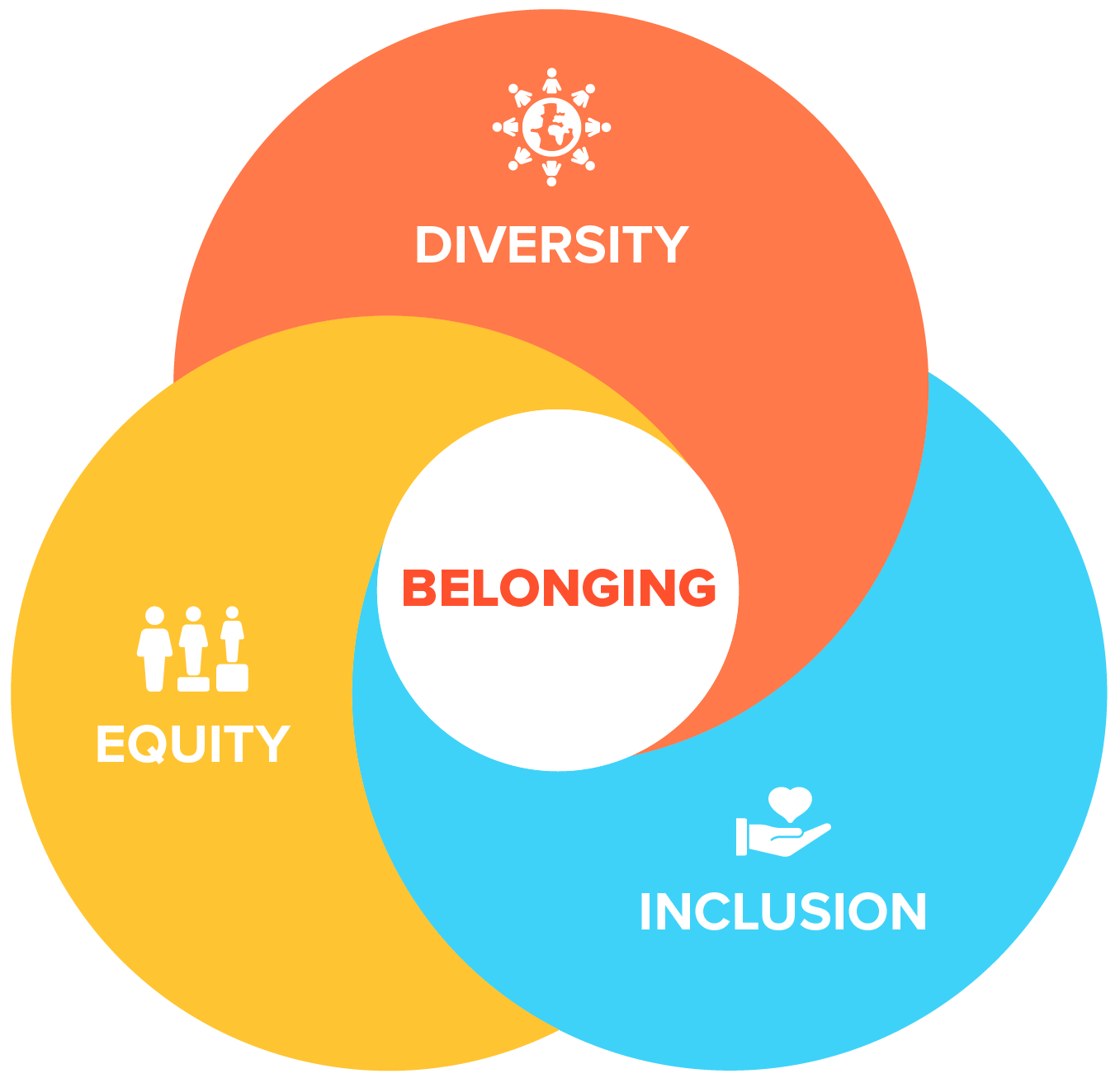Diversity is a reality created by individuals and groups from a broad spectrum of demographic and philosophical differences. These differences can exist along dimensions of race, ethnicity, gender, language heritage, sexual orientation, socioeconomic status, age, physical abilities, religious beliefs, political beliefs, or other ideologies. It explores these differences in a safe, positive, and nurturing environment. It is about understanding each other and moving beyond simple tolerance to embracing and celebrating the rich dimensions of difference contained within everyone. Finally, we acknowledge that categories of difference are not always fixed but can be fluid, and we respect individual rights to self-identification, as no one culture is intrinsically superior to another.
Equity is the state, quality, or ideal of being just, impartial, and fair. The concept of equity is synonymous with fairness and justice. Equity needs to be considered a structural and systemic concept to be achieved and sustained. Equity is a robust system and dynamic process that reinforces and replicates equitable ideas, power, resources, strategies, conditions, habits, and outcomes.
Inclusion is more than simply ensuring diversity and numerical representation. Being inclusive involves authentic and empowered participation and a true sense of belonging. In an inclusive school, the social and instructional space is designed such that all students have access to the curriculum, and there are many opportunities for students to be successful.


